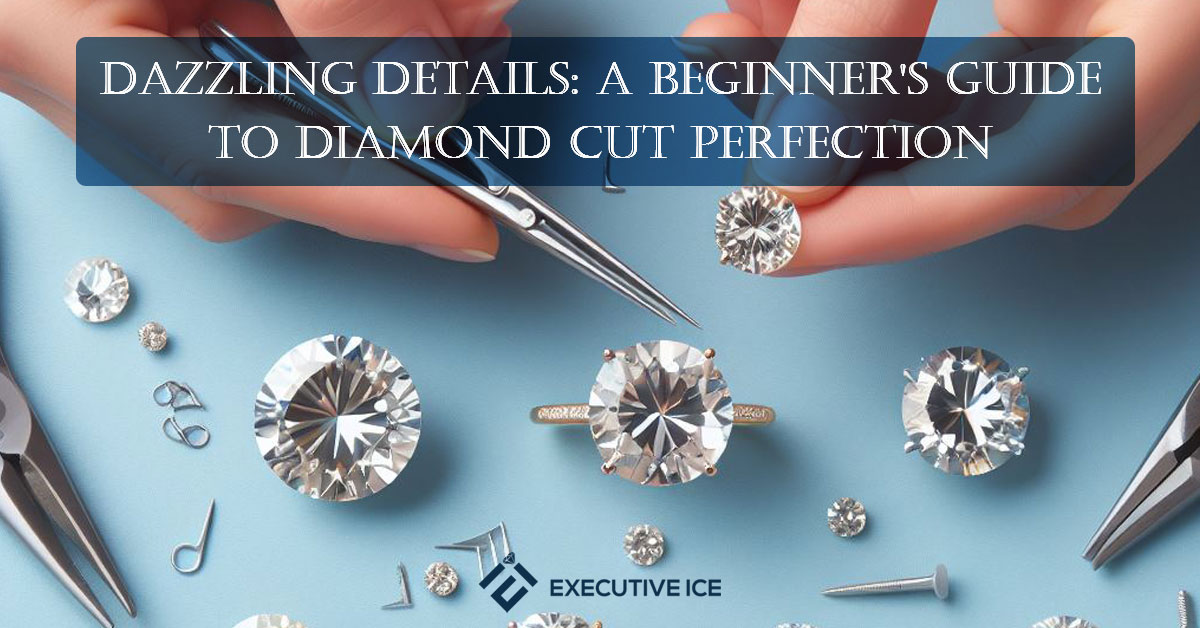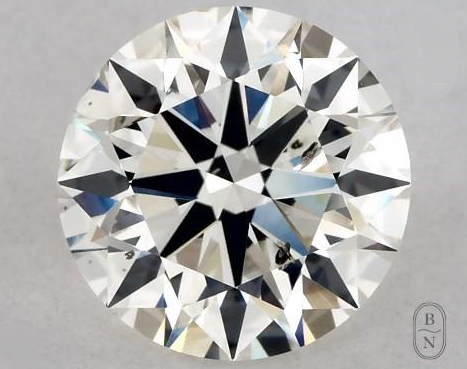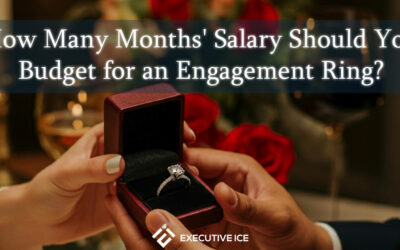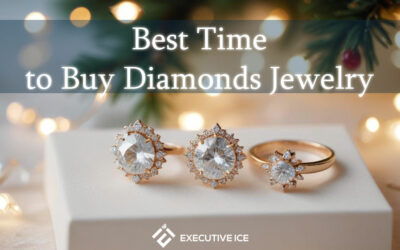Hey there, diamond enthusiasts! Have you ever wondered what makes diamonds sparkle like a starlit night? Well, it’s all about the cut. The cut of a diamond isn’t just about its shape; it’s the heart and soul of its sparkle.
In this guide, we’re going to take a journey through the world of diamond cuts. We’ll explore different types of cuts, what makes a great cut, and how to choose the perfect one for your style and budget. Whether you’re a first-time buyer or a seasoned collector, understanding diamond cuts will help you make the best choice for that special piece.
So, let’s get started and unlock the secrets of diamond cuts, the true stars in the world of gems!
1. Introduction
-
Overview of the importance of diamond cuts
You might be thinking, “Isn’t size or color more important?” Sure, they matter too, but the cut is the unsung hero. A well-cut diamond can outshine a bigger or more colorful one. It’s all about how light travels through the diamond, hitting each angle and facet, and comes back out to give us that eye-catching sparkle.
-
How Diamond Cuts Affect a Diamond’s Brilliance and Value?
Have you noticed how some diamonds sparkle more than others? Well, it’s not just about the size or the bling; it’s the cut that truly makes a diamond shine.
The cut of a diamond doesn’t just affect its sparkle; it also plays a big role in determining its value. A well-cut diamond will generally be worth more than one that’s been cut poorly, even if they’re the same size and color. Why? Because a good cut brings out the best in a diamond, showcasing its fire and brilliance. It’s like turning a rough stone into a masterpiece.
So, when you’re out there hunting for that perfect diamond, remember – the cut is where the magic happens. It’s not just about finding a diamond, but finding one that’s been cut to reveal its true beauty and brilliance, just like the one in the picture below where it has an excellent cut!
2. Understanding Diamond Cuts
-
What a diamond cut actually is?
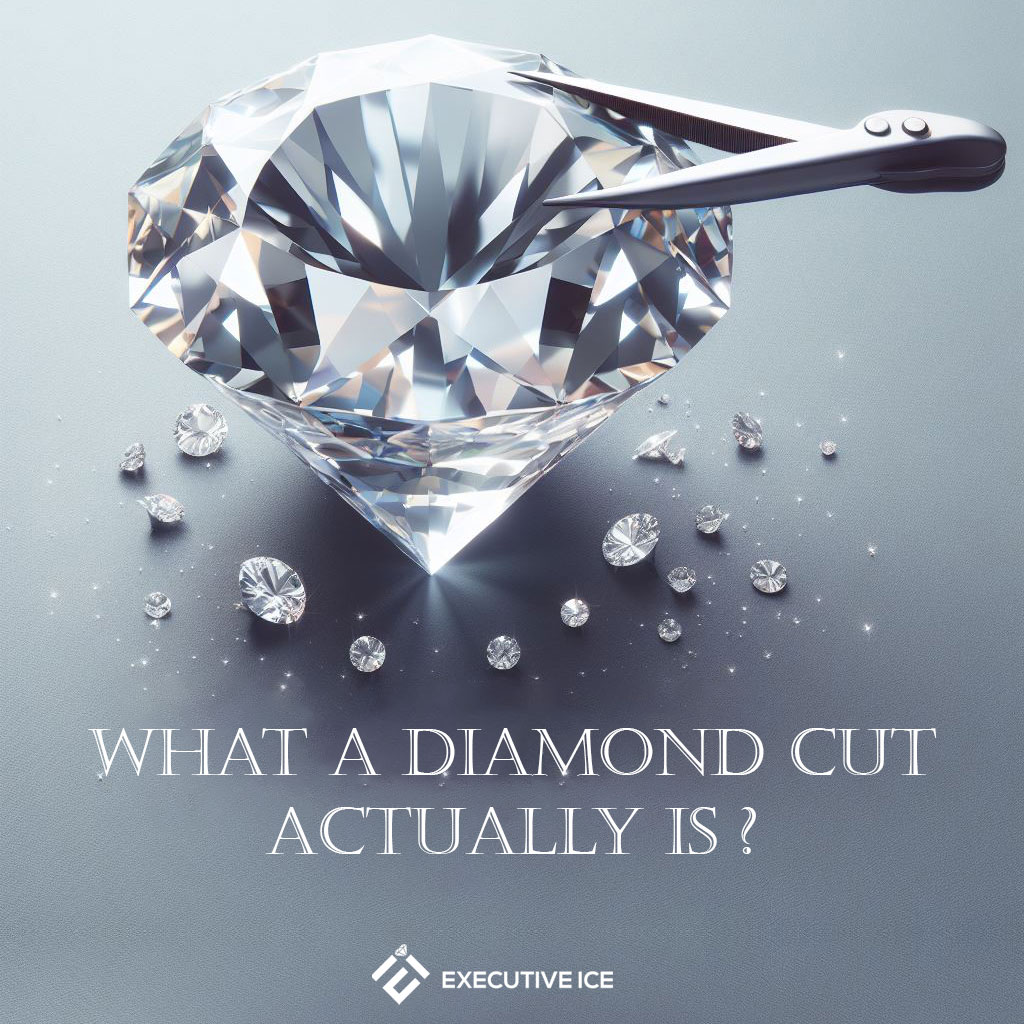
When we hear “diamond cut,” it’s easy to think it’s all about the shape of the diamond-like round, oval, or heart. But here’s the scoop: the cut of a diamond is way more than its outer shape.
A diamond cut is essentially the blueprint of how a diamond has been shaped and polished from its rough form. It’s about how each of the diamond’s facets – those tiny, flat surfaces – are angled and sized. These facets are like the parts of a puzzle, and how they’re put together determines how light plays and dances through the diamond.
In the world of diamonds, cut quality can range from excellent to poor. An excellent cut will have the right balance of depth and width, allowing maximum light to bounce around inside the diamond and come back out to dazzle your eyes. On the other hand, a poor cut can leave a diamond looking lifeless and dull, even if it’s flawless in other ways.
Now, imagine the diamond is a mini-light show. A well-cut diamond is like having the best seats at this show. The light enters the diamond, bounces around inside (thanks to those facets), and then comes back out to your eyes with all its sparkle and fire. This interplay of light is what gives diamonds their unique beauty.
The skill of the diamond cutter is super important here. They’re the artists who decide how many facets to cut and at what angles. Their goal? To balance the diamond’s brightness (that’s the white light you see), fire (the rainbow colors you see), and scintillation (the sparkle you see when the diamond moves).
So, when we say a diamond has a good cut, we’re not just talking about its shape. We’re talking about how well it interacts with light. And that, my friends, is the real magic behind a diamond’s allure.
There you have it – a little deep dive into what a diamond cut is all about, It’s the unseen art that turns a piece of carbon into a mesmerizing gem!
-
The Difference Between Diamond Cut and Diamond Shape
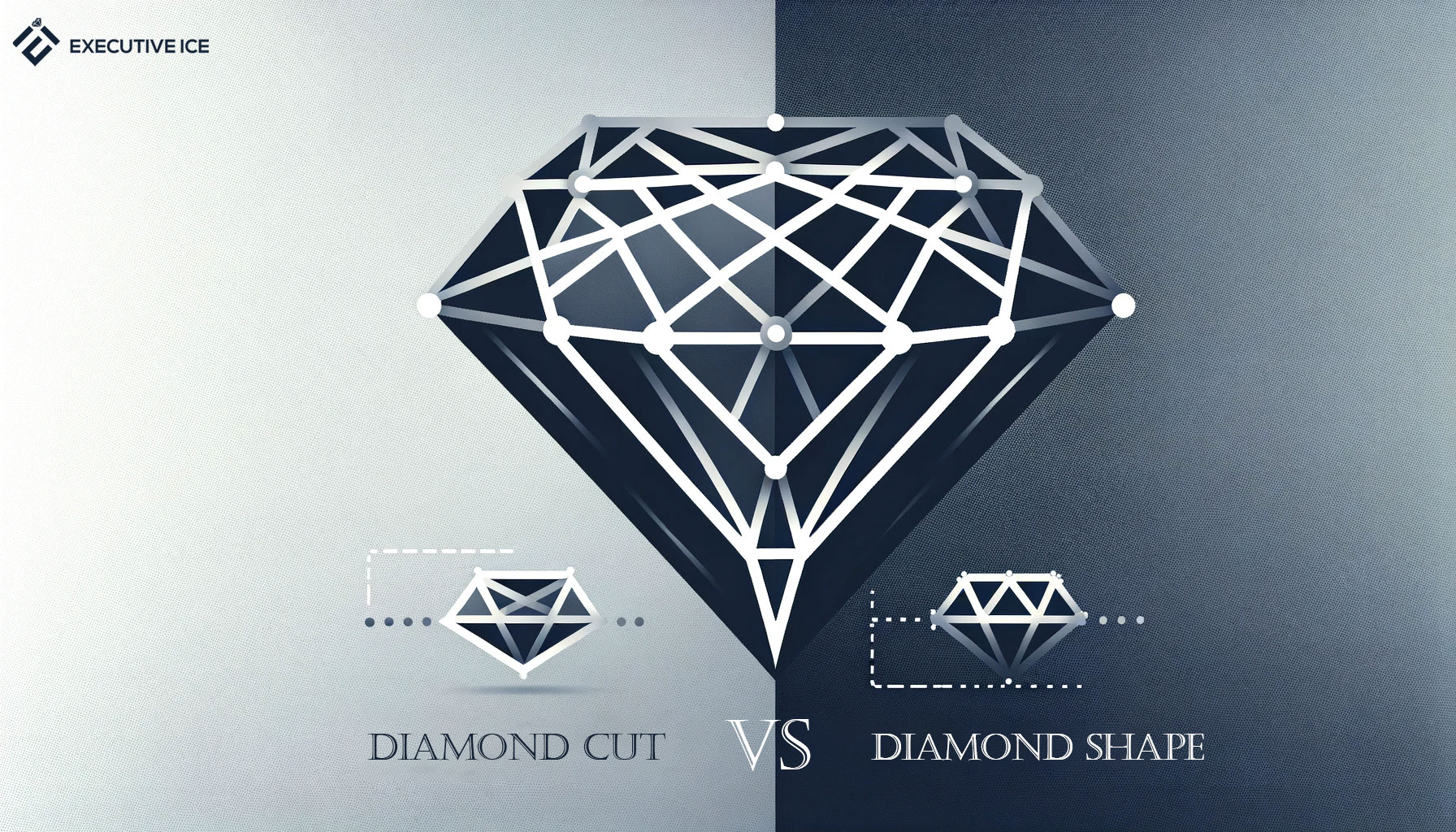
Alright, let’s clear up a common mix-up in the diamond biz: the difference between diamond cut and diamond shape. Though they sound similar, they’re actually two different aspects of a diamond.
-
First up, diamond shape
This one’s pretty straightforward. When we talk about a diamond’s shape, we’re talking about its physical form. Think of it as the outline or silhouette of the diamond when you look at it from above. There are all kinds of shapes like round, oval, princess, pear, and so on. It’s the first thing that catches your eye, the physical geometry of the stone.
-
Now, diamond cut
this is where it gets more technical and, honestly, more fascinating. The cut isn’t about the diamond’s outer shape. It’s all about how the diamond has been cut and polished from its raw, rough form. This includes the arrangement and proportions of the facets – those tiny, flat surfaces you see on the diamond. A good cut means those facets are in just the right places and at the right angles to let the light dance through the diamond, creating that sparkle and brilliance we all love.
In simpler terms, think of the shape as the diamond’s ‘face’ and the cut as its ‘personality.’ The shape is what you see at first glance, but the cut is what brings the diamond to life with its sparkle and fire.
So, when you’re out there looking at diamonds, remember: shape is what you see, but the cut is what makes a diamond truly shine. It’s like the difference between the shape of a guitar and how well it’s tuned. Both matter, but it’s the tuning (or the cut, in our case) that really makes the music.
3. Types of Diamond Cuts
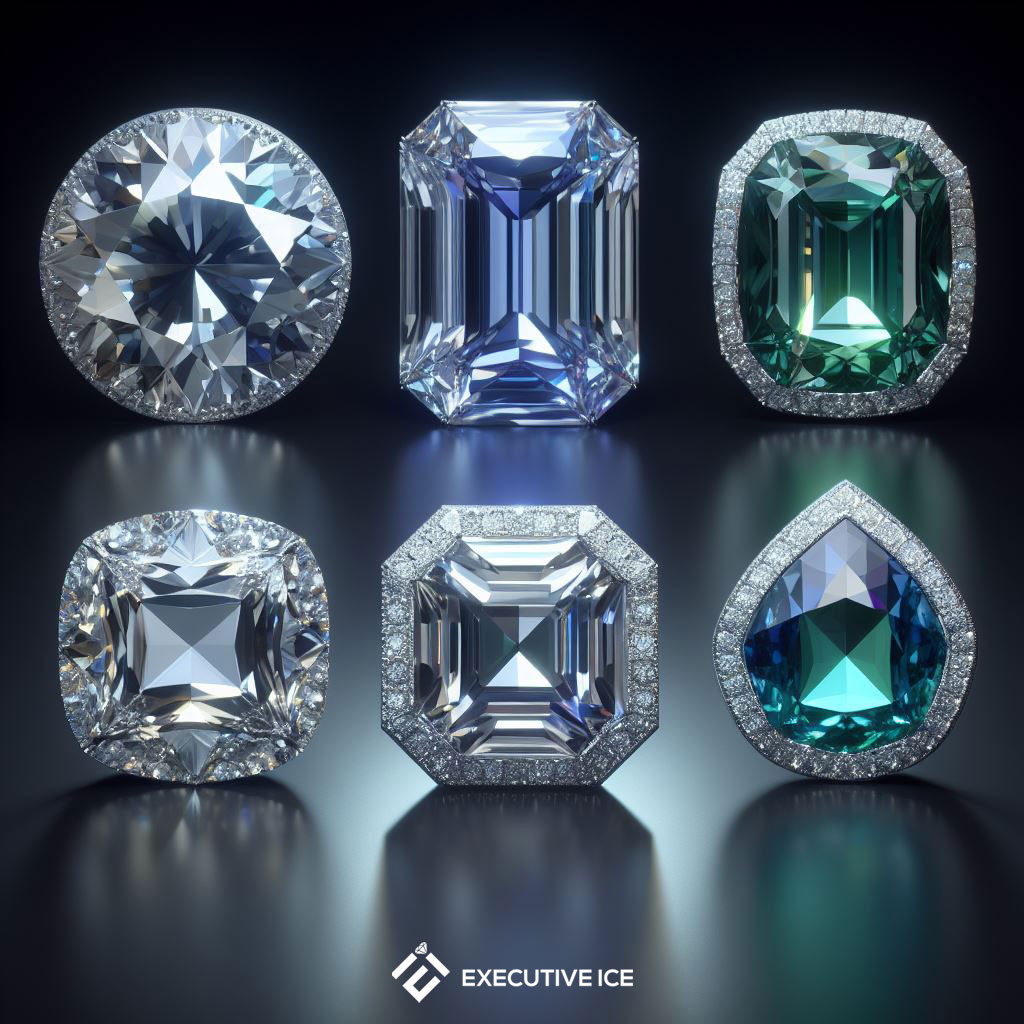
-
Different diamond cuts: characteristics and appeal of each
Let’s take a stroll through some of the most popular ones.
-
First up, the Round Cut
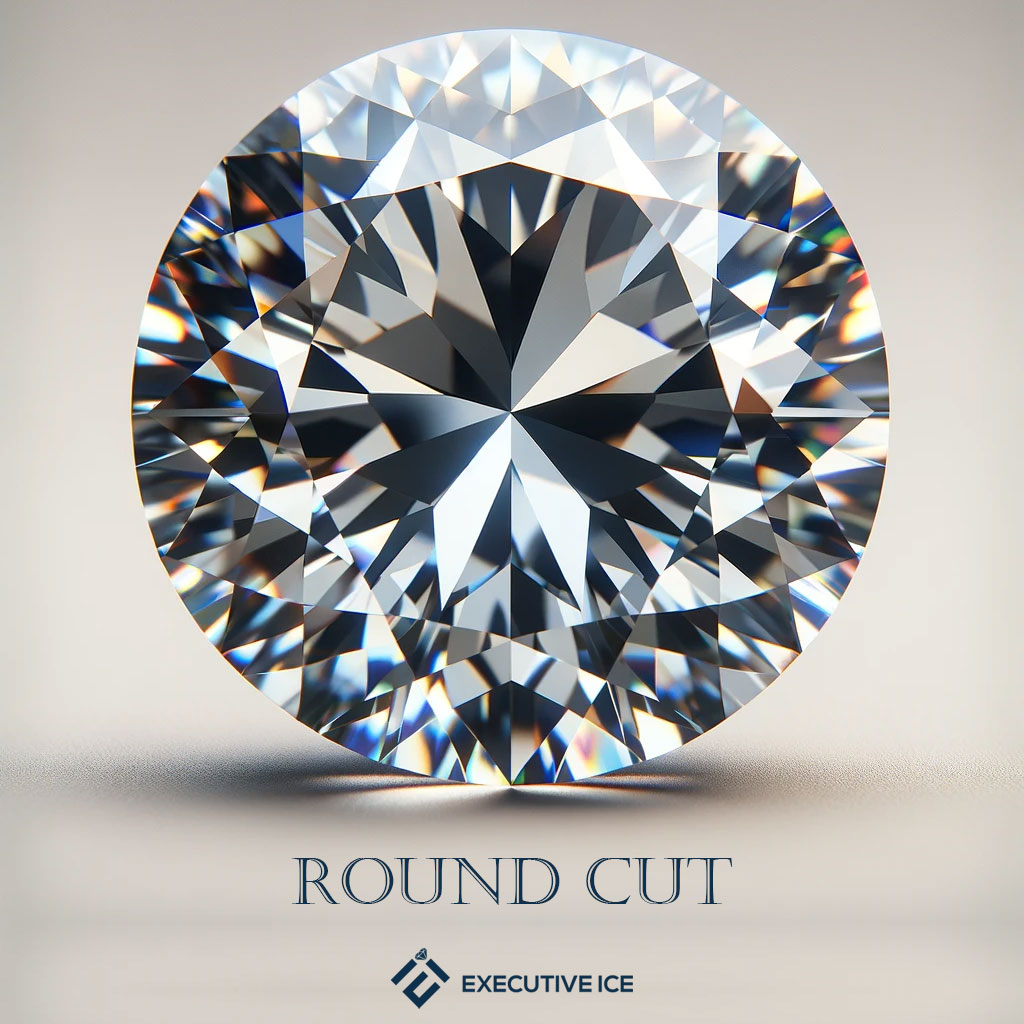
This is the classic, the one you see in many engagement rings. It’s loved for its incredible brilliance and versatility. A round-cut diamond has 57 or 58 facets (those little flat surfaces), which means it catches light from all angles. It’s like the diamond version of a disco ball, sending sparkles in every direction! perfect for those who love traditional beauty and want their diamond to really shine. If you are one of them, you can find Round Shape Diamonds in Jamesallen.
-
The Princess Cut
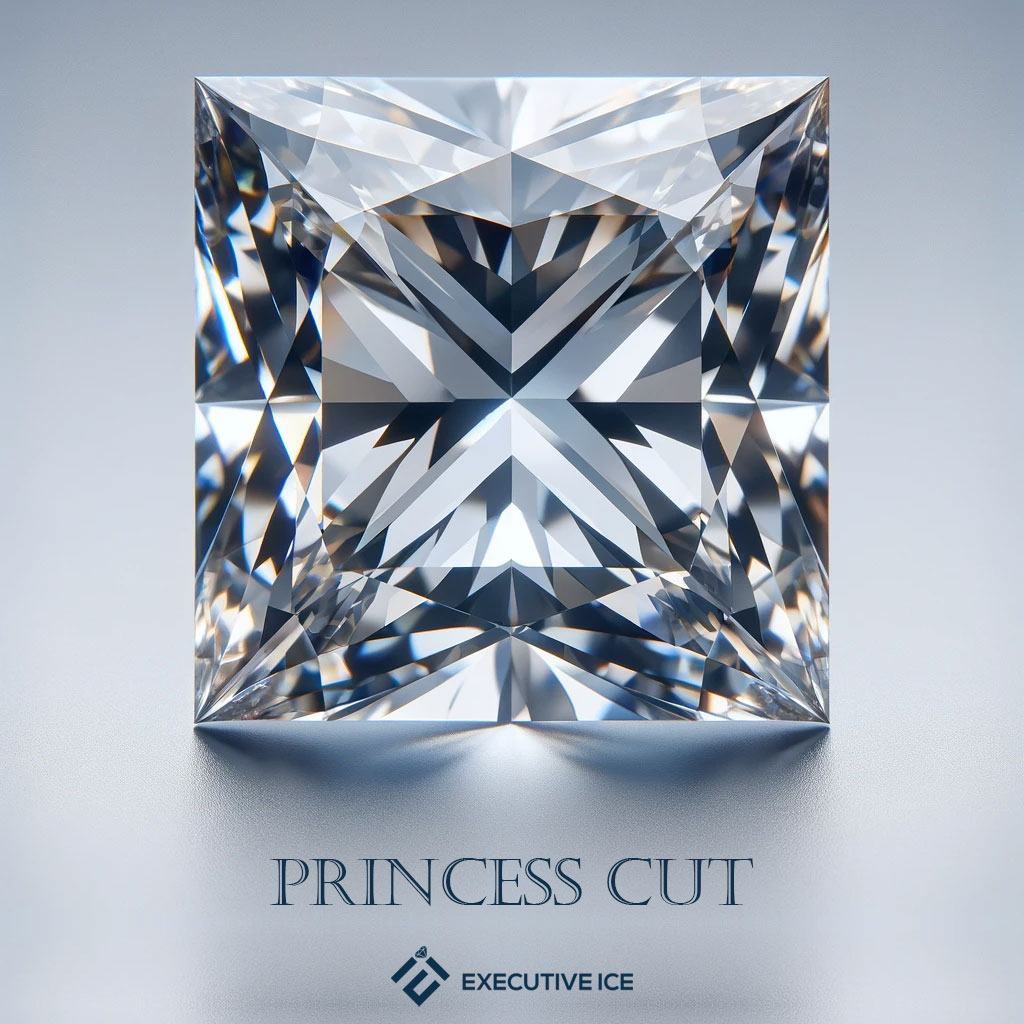
It’s a bit more modern and edgy, with a square or rectangular shape and sharp corners. This cut is second in popularity to the round cut and is known for its unique combination of sparkle and geometric lines. It’s like the cool, stylish cousin in the diamond family. This cut is ideal for someone with a bold, fashion-forward style.
Now, think of a princess cut like a star, with sharp, dynamic flashes of colored light. But wait! No need to think, as you can directly check what the princess shape diamonds look like through Jamesallen.
-
The Emerald Cut
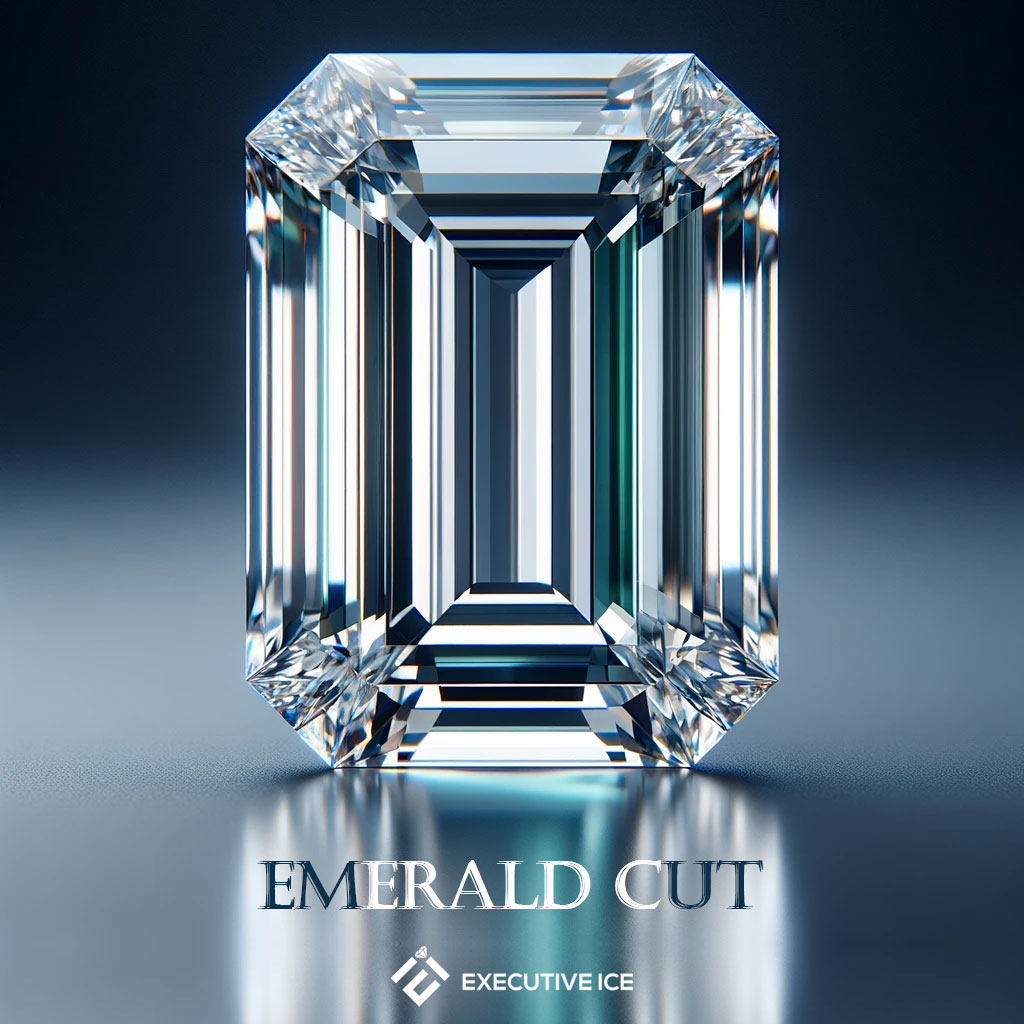
It’s more about elegance and sophistication. This cut has a rectangular shape with cut corners and is known for its ‘hall-of-mirrors’ effect. It doesn’t sparkle as much as a round cut, but it has a quiet, understated glamour. It’s like the diamond that knows it doesn’t need to shout to be noticed. It’s perfect for someone who appreciates vintage charm and understated glamour.
Imagine the emerald cut as a calm lake under the moonlight, with long, clear reflections, just like this charming emerald cut engagement ring👇
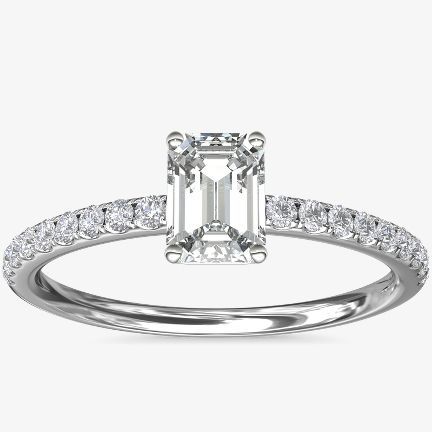
-
The Oval Cut
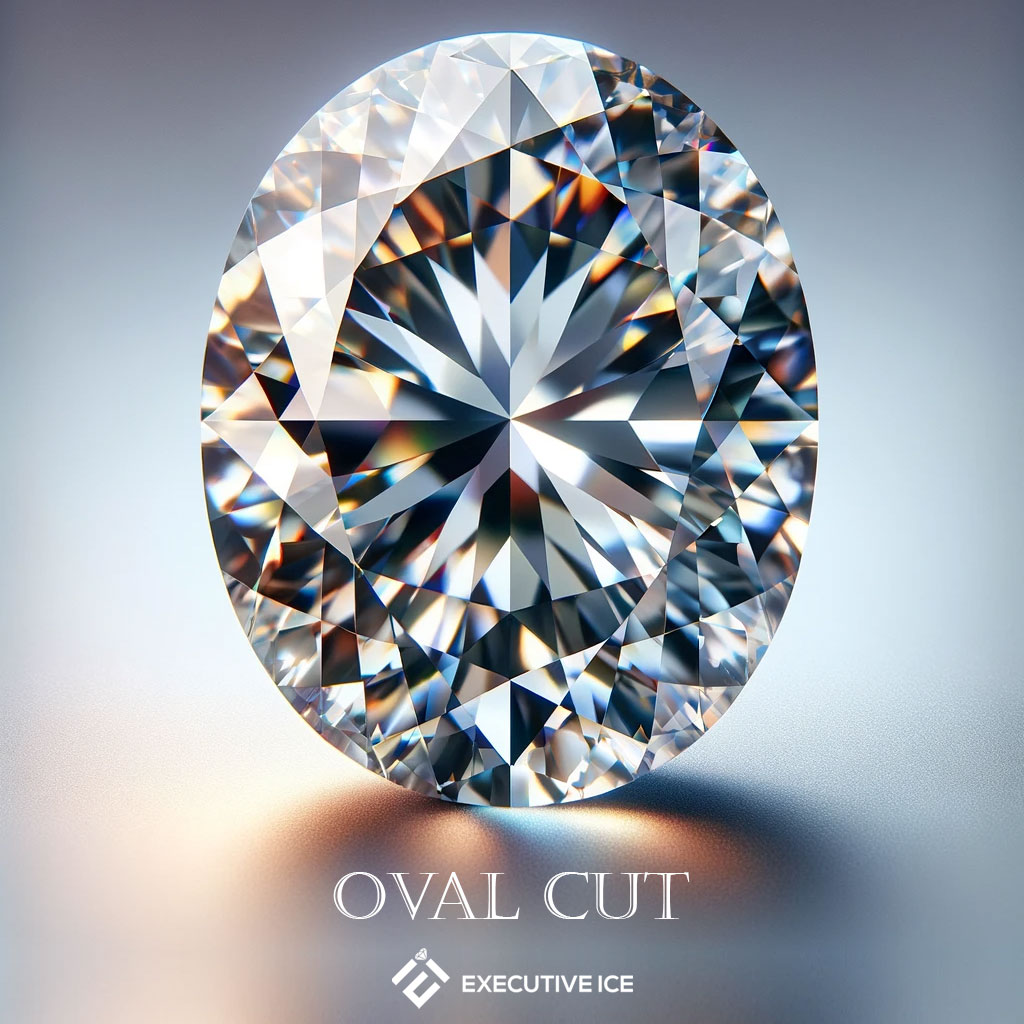
This one is like the round cut’s more elongated sibling. It’s got a similar sparkle to the round cut but in a slightly different shape. It’s great for someone who loves the classic look but wants something a tad different. You can get it from Blue Nile.
-
The Pear Cut
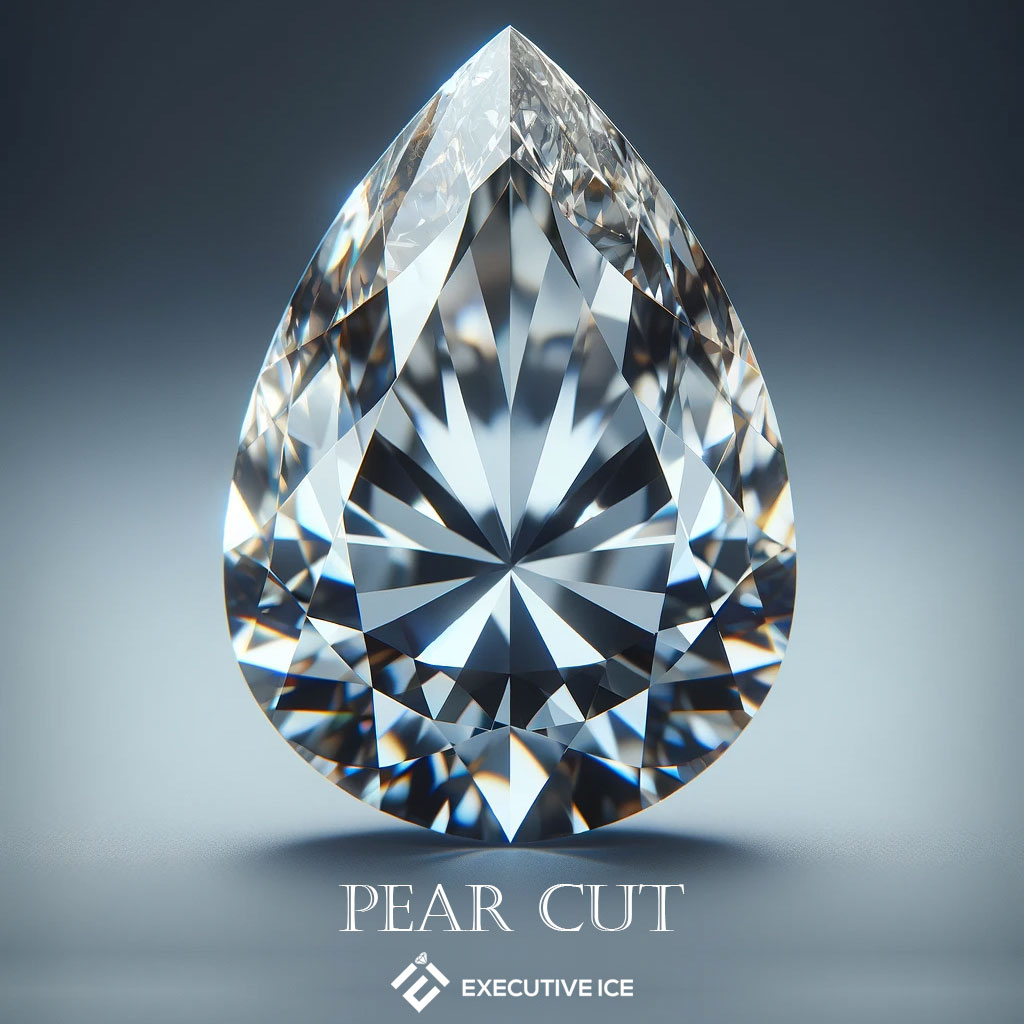
sometimes called the teardrop. It’s a mix of round and marquise cuts and looks just like a sparkling teardrop. This cut is for those who love a bit of whimsy and romance in their jewelry and want a diamond that’s a conversation starter. At James Allen, you will find very stunning Pear Shape Diamonds.
-
Last but not least, the Marquise Cut
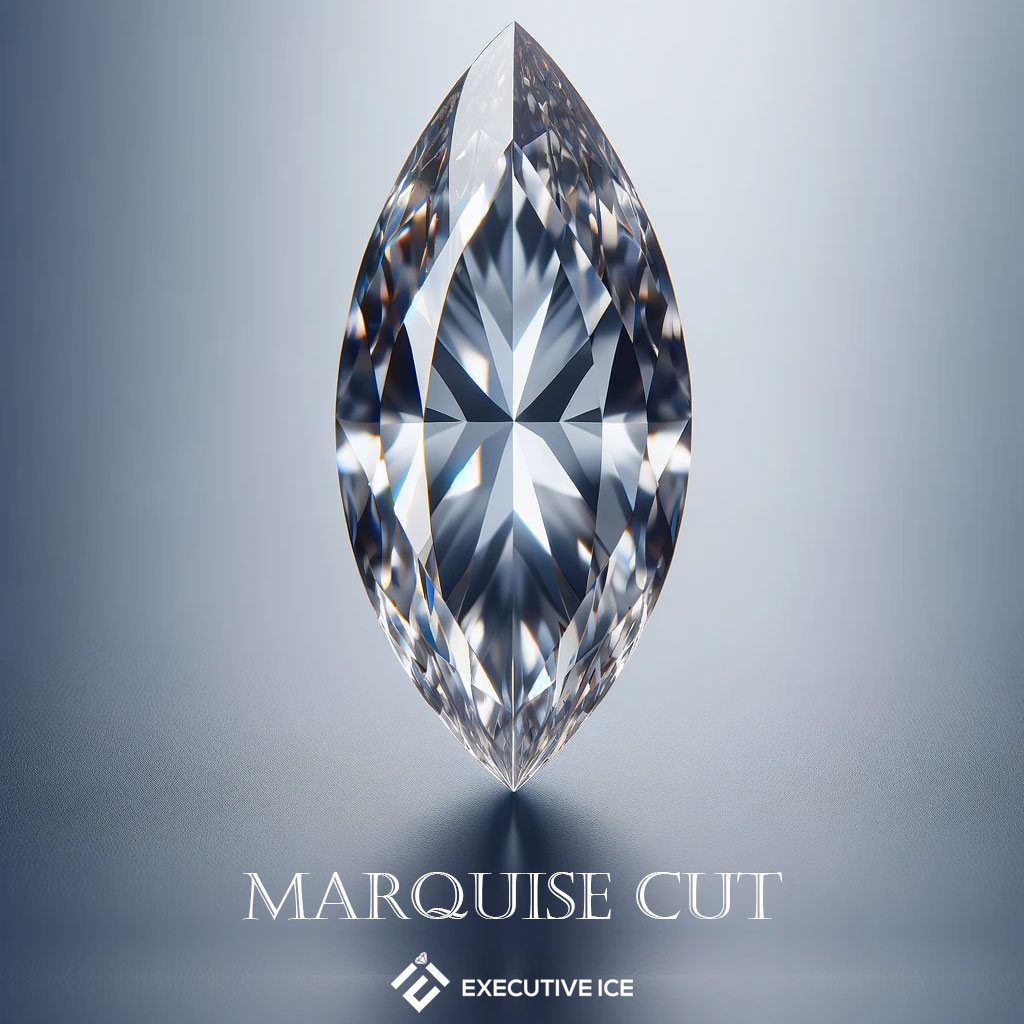
This one’s got an elongated shape with pointed ends. It’s dramatic and makes the diamond look larger than it is. It’s the kind of diamond that likes to make a bold statement.
For the oval, pear, and marquise cuts, envision a boat gently moving on water, creating long, flowing ripples of light. Check out this stunning collection of Marquise Shape Diamonds on Blue Nile.
These are just a few examples, but there are many more cuts out there, each with its own charm. The beauty of diamond cuts is that there’s one for every personality and style. Whether you like your diamonds classic and sparkly or sleek and modern, there’s a cut out there that’s just right for you.
4. Cut Grades Explained
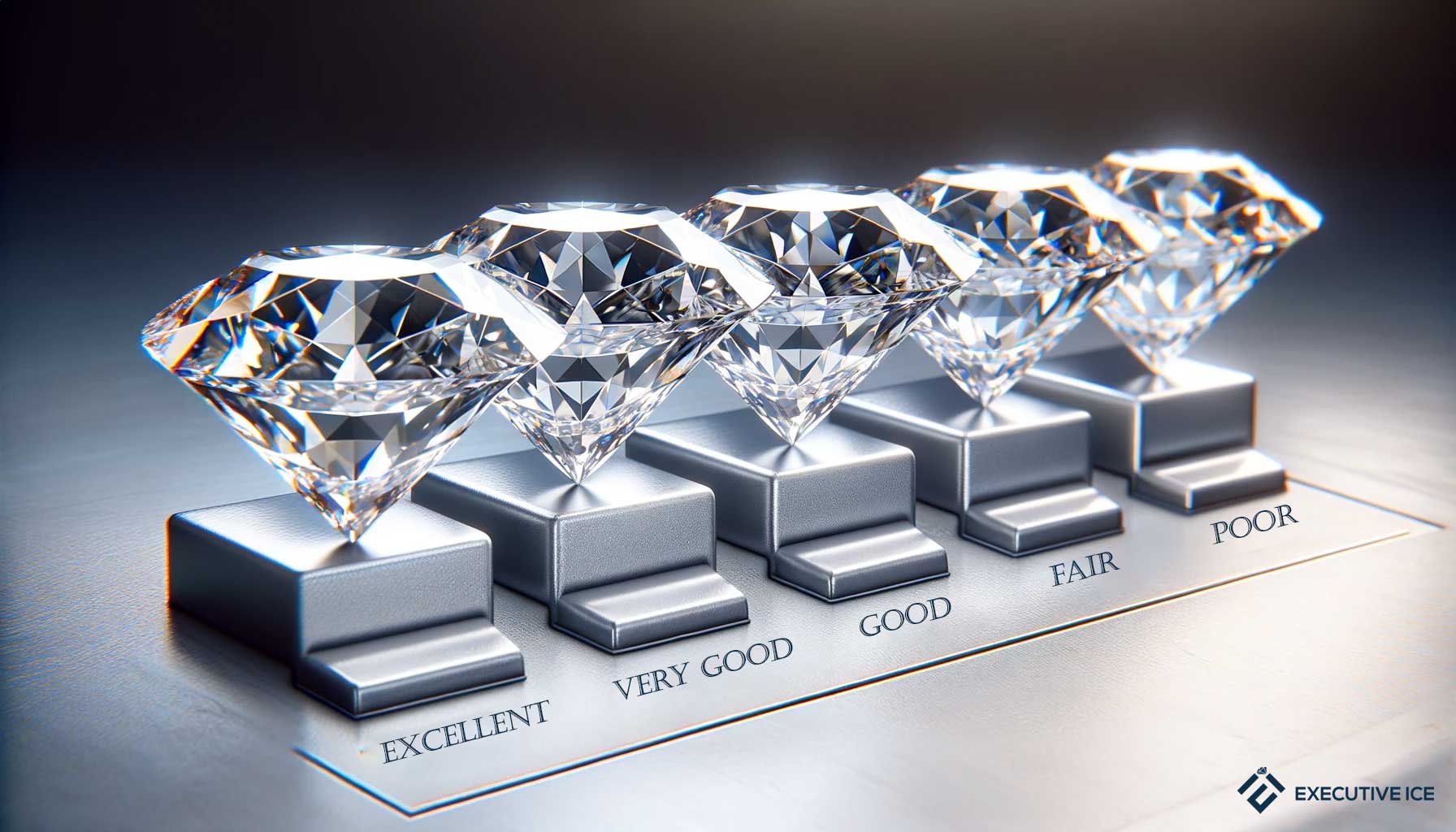
-
Cut grading system: How it affects the diamond’s appearance and value
A diamond’s cut grade is a big deal – it’s like the diamond’s personal sparkle meter. The higher the grade, the more it shines and shimmers. And in the diamond world, sparkle is king.
The cut grading system is like a report card for how well a diamond has been cut and shaped. It looks at how the diamond cutter has balanced depth and width, and how this affects the diamond’s ability to sparkle and shine.
Here’s the breakdown of the grades:
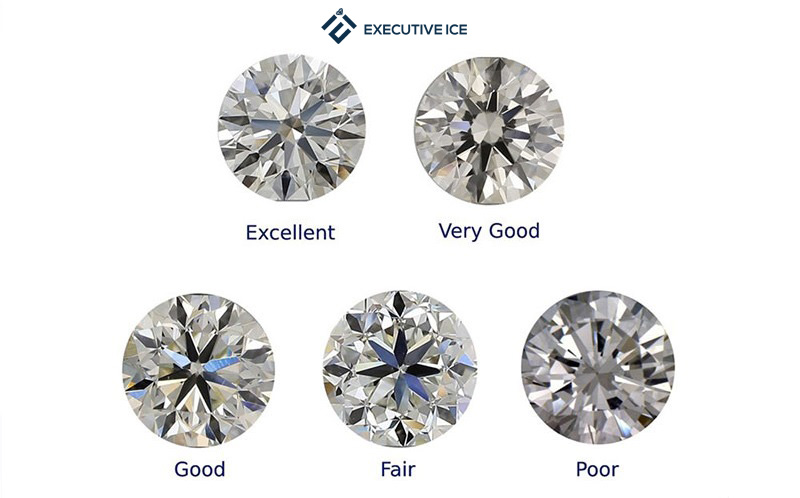
-
Excellent (also known as Ideal cut)
This is the top-of-the-line. An excellent cut diamond is a real showstopper. It’s been cut to near perfection, meaning it reflects almost all the light that enters it. This is what gives it that stunning brilliance and fire. An excellent-cut diamond is often more expensive because of how amazing it looks.
-
Very Good
These diamonds are just a step below excellent. They reflect most of the light that enters them, so they’re still pretty sparkly. A very good-cut diamond is often a great balance of high quality and value. usually, a bit more affordable than the excellent cut. Their appearance is still top-notch, and they offer great value for the price.
-
Good
A good-cut diamond offers a fair amount of sparkle, although it doesn’t capture light as well as the very good or excellent grades. These diamonds provide a good balance between cost and quality, making them a solid choice for those on a budget. It’s a smart choice for folks who want a beautiful diamond without the higher price tag.
-
Fair
These diamonds still have sparkle, but they let more light escape than the higher grades. A fair cut might not have the same brilliance, but it can still be a good option, especially if the diamond has other appealing features like color or clarity.
-
Poor
Diamonds with a poor cut grade are on the lower end of the sparkle spectrum. They lose most of the light that enters them, appearing dull and lifeless. These are often less expensive, but they don’t showcase the diamond’s potential beauty.
To make it more clear, here’s a visual:
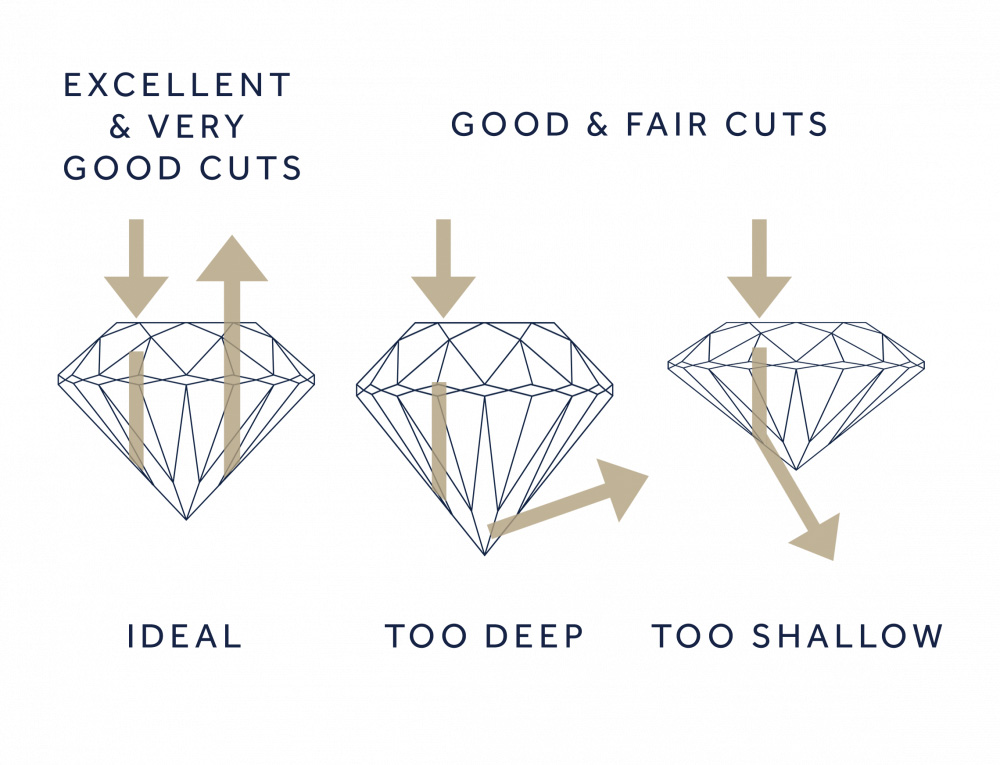
Choosing the right cut grade depends on what you value most: the diamond’s sparkle, its size, or perhaps your budget. But remember, the better the cut grade, the more the diamond will light up the room – and isn’t that what it’s all about?
So, when you’re diamond shopping, give that cut grade a good look. It tells a story about how much that diamond will sparkle and shine. After all, we all deserve a little sparkle in our lives!
Tip: Some retailers like James Allen or Blue Nile offer a “Super Ideal” grade, with retailer-specific names like True Hearts at James Allen, or Astro Ideal at Blue Nile, but it should be noted that it’s not a grade defined by GIA.
5. Choosing the Right Cut for Your Diamond
When it comes to picking the perfect diamond cut, there’s a bit of thinking to do. It’s like choosing the right partner for a dance – you want someone who complements your style and steps.
-
Factors to Consider When Selecting a Diamond Cut
-
Personal Style
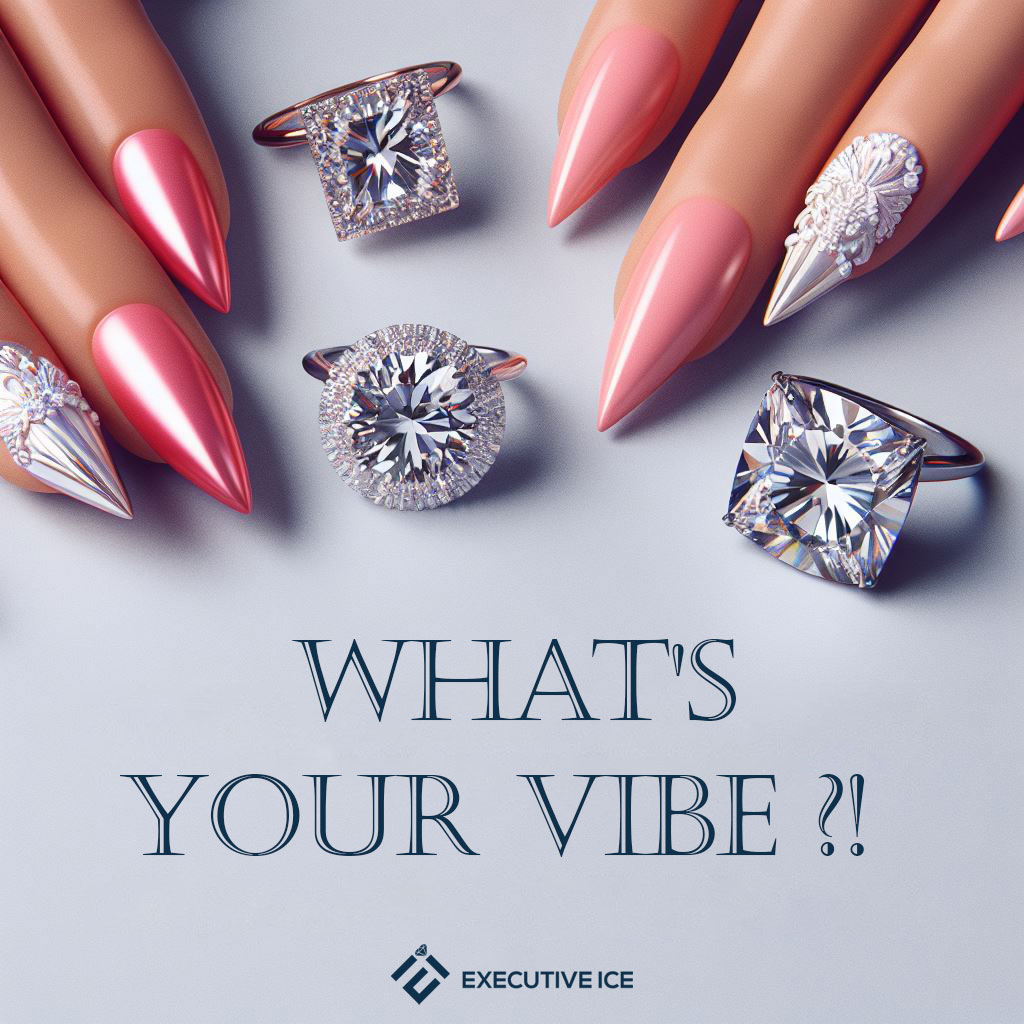
What’s your vibe? Are you more classic and traditional, or do you lean towards modern and edgy? Your diamond should reflect your personality. For instance, a round cut is timeless, while a princess cut is more contemporary.
-
The Setting
Think about where this diamond will live. Different cuts suit different types of jewelry. A marquise cut might look stunning in a pendant, while an oval cut could be perfect for an engagement ring.
-
Your Budget

Let’s be real – how much you’re willing to spend matters. Some cuts can be pricier, especially if they’re high in demand. Remember, a smaller, well-cut diamond can be more stunning than a larger, poorly cut one.
-
Tips for Balancing Cut Quality with Other Diamond Attributes
-
Color and Cut
If your diamond has a bit of color, a good cut can help mask it. The sparkle can draw the eye away from slight coloration. So, a high cut grade might make a less-than-colorless diamond look just as stunning.
-
Clarity and Cut
Like with color, a high-quality cut can distract from small imperfections. A well-cut diamond can hide little blemishes, so you might be able to save a bit by choosing a diamond with a lower clarity grade.
-
Carat and Cut
Bigger isn’t always better. A large diamond with a poor cut can look dull. Sometimes, going for a smaller diamond with an excellent cut can give you more bang for your buck in terms of brilliance and fire.
At the end of the day, picking the right diamond cut is about what makes you happy. It’s a balance of looks, feel, and value. Trust your instincts, and remember, the right diamond cut will make your heart light up just like the diamond itself.
6. Caring for Different Diamond Cuts
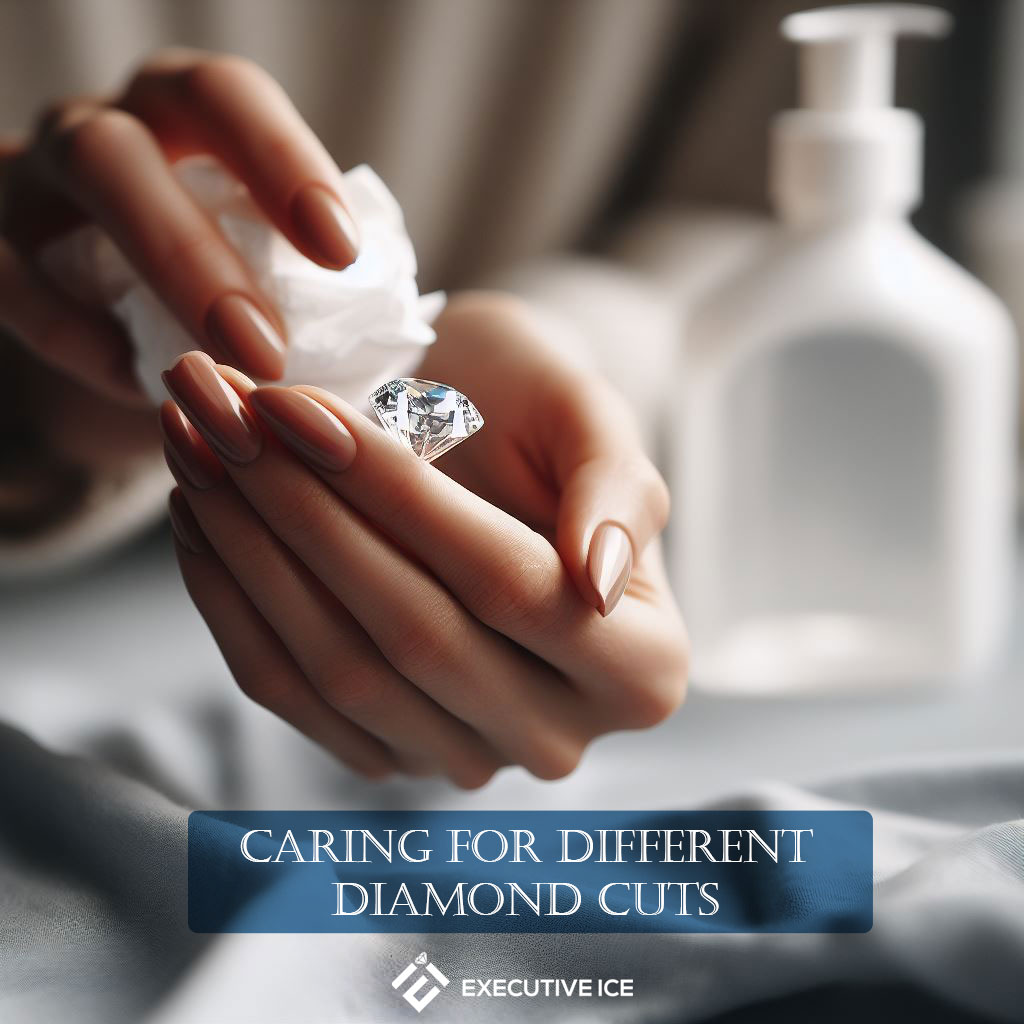
Taking care of your diamonds is key to keeping them shining bright for years to come. Different cuts need a little different care but don’t worry, it’s nothing too complicated.
-
Maintenance and Cleaning Tips Tailored to Different Cuts
-
General Care
For all diamond cuts, regular cleaning is a must. You can keep them sparkling with a simple mix of warm water and mild dish soap. Use a soft toothbrush to gently scrub around the diamond and setting. Rinse it well and pat dry with a soft cloth. Do this every few weeks, and your diamonds will thank you.
-
Special Attention to Cuts with More Facets
Diamonds like the round or princess cut have more facets, which means more places for dirt and oil to hide. Give these cuts a bit extra care when you clean them, making sure to gently brush all the angles.
-
Care for Step-Cut Diamonds
Emerald and Asscher cuts have larger, open facets. This means they show fingerprints and smudges more easily. A quick, gentle wipe with a soft, lint-free cloth can keep them looking clear and bright.
-
Protecting Your Diamond’s Cut from Damage
-
Be Mindful of Your Activities
When you’re doing heavy work or playing sports, it’s a good idea to take your diamond off. Hard knocks can chip it, especially cuts with sharp corners like the princess or marquise.
-
Store Diamonds Separately
Diamonds are tough, but they can scratch each other. Store each piece of diamond jewelry separately, ideally in a soft cloth pouch or a jewelry box with compartments.
-
Regular Check-Ups
Just like you, your diamonds need check-ups too. Take them to a jeweler every so often to make sure the settings are secure, especially for cuts with exposed corners.
Remember, diamonds might be the hardest natural substance on Earth, but they still need a little TLC. With the right care, your diamonds will keep on sparkling, just like the first day you got them.
7. FAQs about Diamond Cuts
-
Addressing common questions and misconceptions
-
Is a bigger diamond always better?
Not necessarily. While a bigger diamond is eye-catching, the cut can make a smaller diamond outshine a larger one. It’s the cut that brings out the diamond’s fire and brilliance. So, a smaller, well-cut diamond can often be more stunning than a larger, poorly cut one.
-
Does a diamond’s cut affect its durability?
Yes, to an extent. Cuts with sharp edges, like the princess cut, can be more prone to chipping. It’s important to take extra care with these cuts. A round cut, on the other hand, tends to be more durable due to its rounded edges.
-
Can the cut of a diamond hide flaws?
Absolutely! A skilled cut can mask certain imperfections, like small inclusions or color tints. For example, a high-quality round cut can make these little flaws less noticeable, thanks to its brilliant sparkle.
-
Is the most expensive cut always the best?
Price isn’t always a direct indicator of quality. The most expensive cut might not be the best for you. It depends on your personal preferences, style, and budget. It’s about finding the right balance between the cut, color, clarity, and carat that suits you.
-
Can you tell the quality of a cut just by looking at it?
While it takes a trained eye to assess cut quality formally, you can get a good idea by looking at the diamond’s sparkle and symmetry. A well-cut diamond should have a balanced appearance and an eye-catching sparkle.
-
Does the cut affect the color of a diamond?
Yes, in a way. A well-cut diamond can appear brighter and whiter, even if its color grade isn’t the highest. The way the light plays through the facets can enhance its apparent color.
Remember, when it comes to diamonds, the cut is a major player in its beauty. It’s not just about how much the diamond costs or how big it is. It’s about how the light dances inside it, bringing out its best shine and shimmer.
8. Conclusion
-
Summary of key points
Well, friends, we’ve journeyed through the sparkling world of diamond cuts. Let’s circle back to the key points we’ve covered:
-
The Importance of Cut
We’ve seen how the cut is not just about the diamond’s shape, but how it interacts with light. A well-cut diamond sparkles and shines, capturing hearts just as much as eyes.
-
Different Types of Cuts
From the classic round cut to the elegant emerald cut, each has its own unique charm. Remember, the right cut for you is the one that reflects your style and personality.
-
Cut Grades
These grades tell us about the diamond’s sparkle and brilliance. A higher grade means more sparkle, but don’t forget to balance it with other factors like color, clarity, and carat.
-
Choosing the Right Cut
Consider your personal style, the setting, and your budget. A great cut can enhance a diamond’s other qualities, making even a smaller diamond stand out.
-
Care and Maintenance
Treat your diamonds well, and they’ll keep sparkling for generations. Regular cleaning and careful storage go a long way.
Remember, the cut of a diamond is like its heartbeat – it’s what gives it life and fire. When you’re choosing a diamond, think about how the cut makes you feel. Does it make your heart skip a beat? Does it light up your eyes? That’s the magic of a great cut.
So, whether you’re picking a diamond for yourself or for someone special, keep the cut in mind. It’s not just a detail – it’s the soul of the diamond. A well-chosen cut will ensure your diamond not only shines bright but also tells a story, your story.

